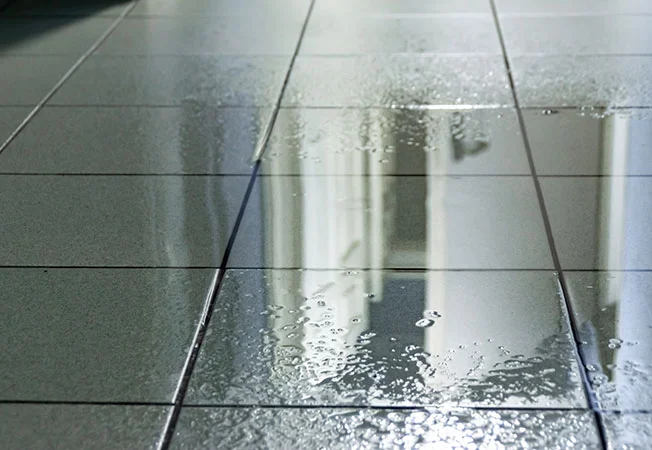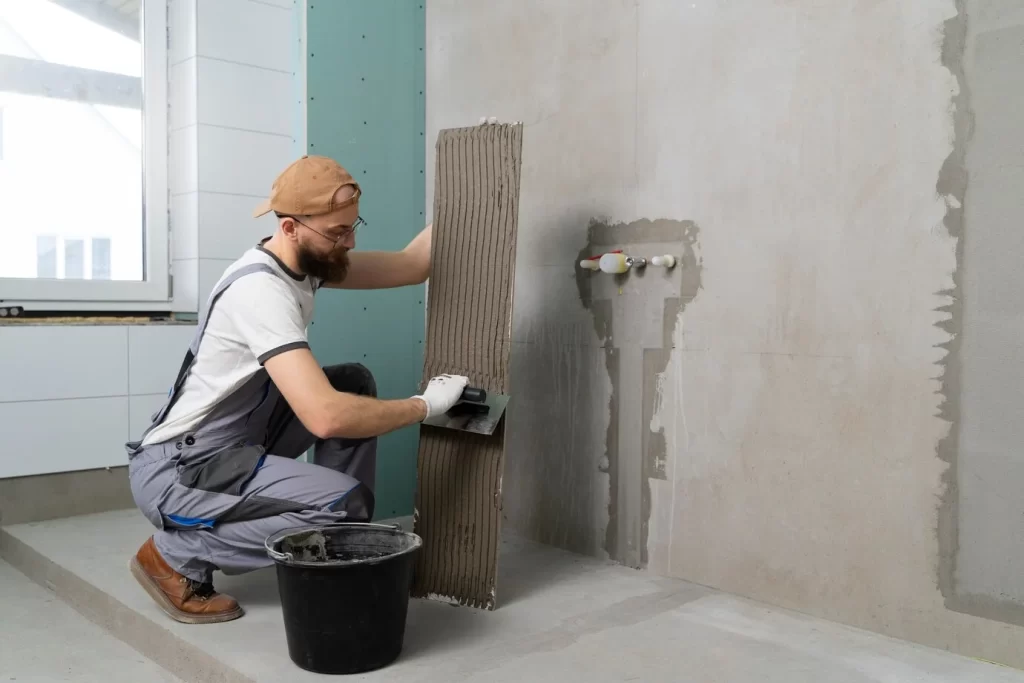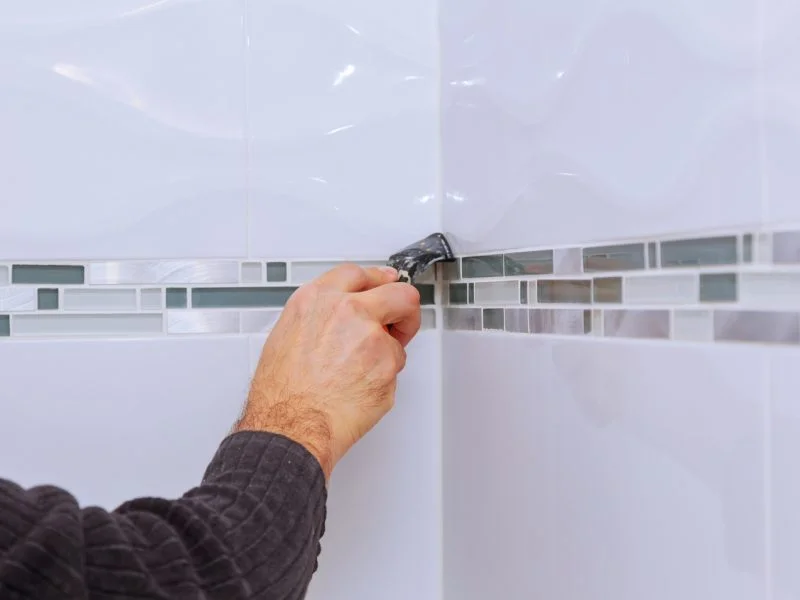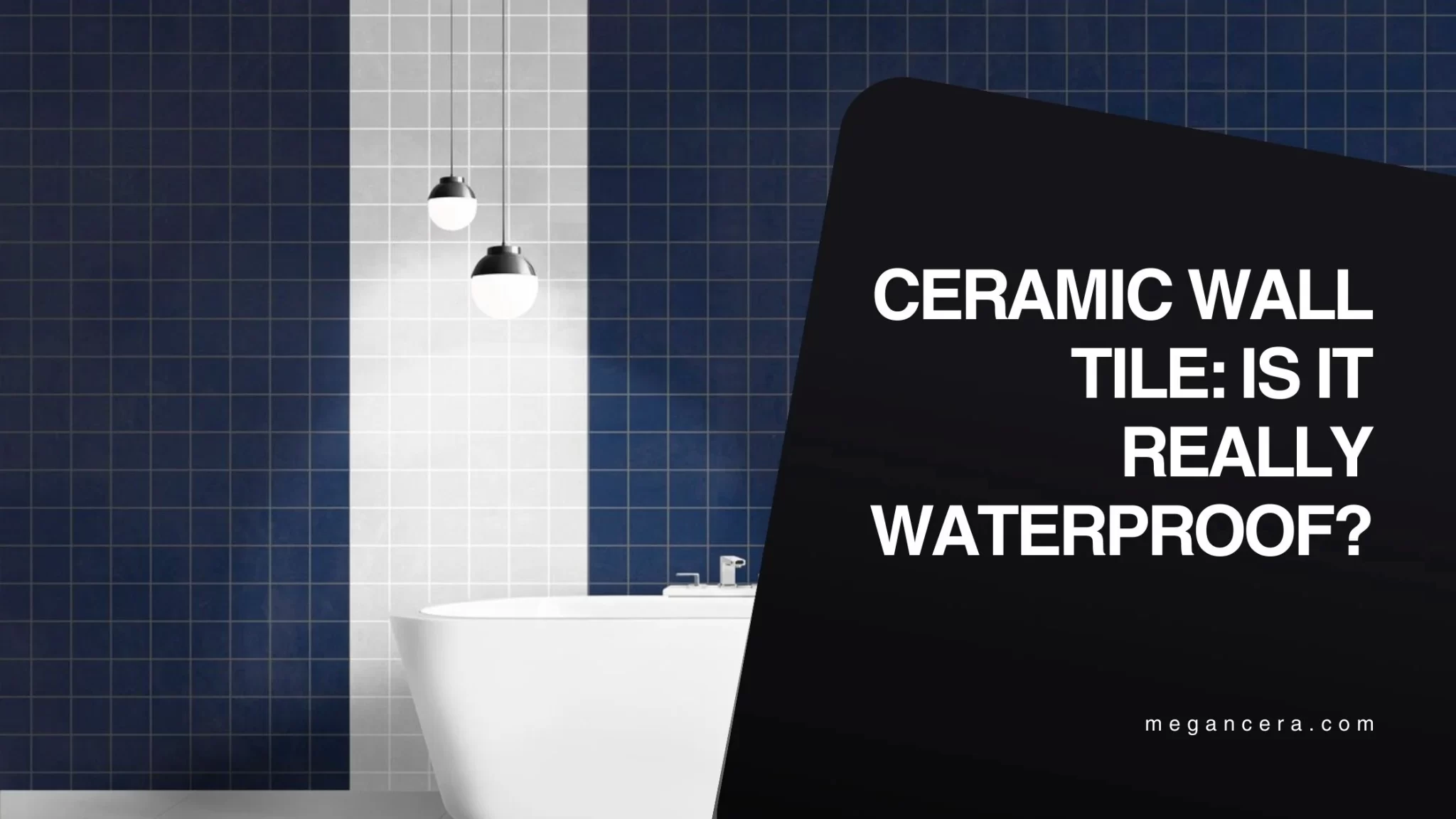You've fallen in love with the sleek, glossy ceramic wall tile you saw in the home improvement store. Before you rip out your existing bathroom walls to install them, though, you need to ask yourself one important question: Are these tiles really waterproof? Ceramic tiles are popular because they seem durable and low-maintenance, but the truth is, they're not completely waterproof.
While ceramic tiles can resist water damage better than many other options, they are still porous. Over time, water can seep through the tiny pores and cracks in the tiles. If water gets behind your wall tiles, it leads to mold, mildew, and water damage, even with ceramic tiles.
So before you commit to a tile you think is "waterproof," make sure you go in with realistic expectations about what it can and can't handle. Ceramic wall tiles may be water-resistant, but waterproof? Not so much.
Buy Waterproof Ceramic Wall Tiles
What Makes Ceramic Tile Waterproof?
Ceramic tile itself is naturally water-resistant, but what makes it actually waterproof are the glazes and sealants applied.
The glazing process fuses a glassy coating onto the surface of the tile. This non-porous glass layer prevents water from penetrating the tile. Ceramic tiles rated for high-moisture areas like bathrooms and kitchens typically have an impervious glaze that achieves a PEI rating of 3 or higher.

To further boost water protection, a sealant or waterproofing product is often applied. Sealants penetrate into the pores of both glazed and unglazed tiles to shield from water damage and stains. For high-traffic, wet areas, a waterproofing membrane can be used to coat the tile installation. These form an impenetrable barrier between tile and water.
Tile sealants and waterproofing treatments typically need to be reapplied every few years to maintain effectiveness. It’s a good idea to check product specifications to see the recommended reapplication schedule.
Ceramic tile can absolutely be waterproof, but it does require proper installation and regular maintenance to keep it that way. By choosing tile with a durable glaze, applying a quality sealant, and resealing when needed, you can enjoy the beauty of ceramic tile without worry in bathrooms, kitchens, and any space where water may splash or spill. Keep your tile and grout looking their best, and you’ll have a waterproof tile surface for years to come.
Factors That Can Impact Ceramic Tile Waterproofing
So you fell in love with those gorgeous ceramic tiles and just had to have them for your bathroom or kitchen backsplash. But now you're wondering, are ceramic tiles really waterproof? The short answer is, not exactly.

Porosity
Ceramic tiles are porous, meaning they absorb moisture. The amount of absorption depends on factors like:
-
The clay and minerals used: More porous clays and fewer fillers mean higher absorption.
-
Firing temperature: Lower firing temps result in less vitrified, more porous tiles.
-
Glazing: Unglazed tiles are more porous than glazed tiles. Glazing seals the surface and protects from stains and scratches.
While ceramic tiles can withstand exposure to water, they are not impermeable. Too much moisture over time can lead to staining, mildew growth, and damage.
Sealing
Applying a sealant, like silicone or epoxy, helps prevent absorption and improves water resistance. Re-sealing may be needed every few years. Sealing is especially important for unglazed tiles or tiles in high-moisture areas like showers.
Proper installation
Even with sealing, water can still penetrate through cracks, grout lines, and the spaces between tiles. To maximize waterproofing, use a waterproofing membrane beneath tiles, apply grout release to prevent grout from sticking to tiles, and seal grout joints.
With the right product selection, sealing, and installation techniques, ceramic tiles can absolutely be used in wet areas. But for 100% waterproofing, you may want to consider alternative options like natural stone, metal, glass or solid surface materials.
Tips for Keeping Ceramic Wall Tile Waterproof
To keep your ceramic wall tile as waterproof as possible, follow these tips:

Seal the grout
Grout is the material between tiles that can absorb moisture if left unsealed. Apply a waterproof grout sealer to the grout lines according to the product directions. Reapply the sealer every 6-12 months to maintain protection.
Caulk corners and edges
Water can seep behind tiles through small cracks and gaps, especially in corners and along edges where tiles meet tubs, showers, countertops, etc. Apply a waterproof caulk, silicone sealant, or tub and tile caulk to seal any cracks to prevent water from getting behind the tiles.
Limit exposure to standing water
While ceramic tiles themselves are water-resistant, prolonged exposure to standing water can still cause damage. Wipe up spills and splashes immediately and avoid submerging areas of tiled walls in water for long periods.
Ventilate and control humidity
Excessive moisture in the air can lead to water damage on tiles and grout over time. Run an exhaust fan while showering and for at least 20 minutes after. You may also want to consider a dehumidifier if you live in an area with high humidity.
Re-grout and re-seal
Grout and sealers will need to be reapplied over time as they start to wear down and become less effective. Watch for signs like discoloration, crumbling, or water spots on grout and re-grout and re-seal those areas to maintain protection.
Following these useful tips will help ensure your ceramic wall tiles stay as waterproof and well-protected as possible so you can enjoy them for years to come. Let me know if you have any other questions!
Conclusion
So there you have it. Ceramic wall tiles can be water resistant but not fully waterproof. Unless specifically rated as impervious, they will eventually let some amount of moisture through. For most areas like bathrooms, kitchens or entryways this is usually not an issue if installed properly and sealed well. But for areas that will see prolonged exposure to standing water like showers, it's best to choose a tile that is specifically rated as waterproof.
At the end of the day, if water damage is a concern it's a good idea to check the specifications of any tile before buying to ensure it can stand up to the amount of moisture in your space. And of course, a quality installation with proper sealing and grouting is key to preventing leaks and keeping your tiles looking their best.








 Live Photos & Videos
Live Photos & Videos